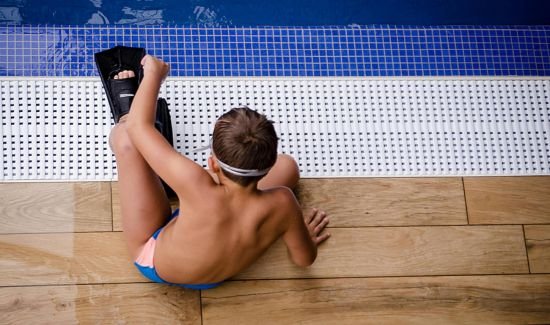
Babysitting isn’t just about watching the kids—it’s about ensuring their safety and prevailing dad and mom’ consider. A 2022 survey confirmed that seventy-five percent of parents prioritize protection while deciding on a babysitter. This Safety Tips for Babysitting Kids provides practical tools to address commonplace demanding situations and secure your youngsters. By expertise those tips, you could become a better, more dependable, and extra official babysitter. For a more comprehensive understanding of how to stay safe while gardening, please refer to our Gardening Safety Guidelines.
Table of Contents
1. Sign up for a babysitter training course.
Enrolling in a babysitter training course is one of the best things to do. According to the American Red Cross, 60% of babysitters who complete their training feel more confident in emergencies. These courses teach CPR, first aid, and how to handle various situations, from small injuries to unexpected accidents at home. By getting training, you can handle emergencies calmly and better.
2. Never open the door to strangers.

It’s important to never open the door to strangers. According to a study by the National Crime Prevention Council, 40% of home invasion attempts occur when the door is opened to a stranger. Teach children not to open the door and always verify visitors with a peephole or camera. These simple precautions can protect you and your children from dangerous situations when you’re in charge.
3. Keep emergency contacts handy.
It is important to communicate immediately. According to a survey conducted through Safe Kids Worldwide, 65% of caregivers reported at least soon using emergency care providers with their mother and father to communicate Save important phone numbers for colleagues, police, parents, and more. In the hand-holding position. Knowing who to call immediately in an emergency can save valuable time and help you respond much better.
4. Never give medicine to children without instructions.

When capsules are taken improperly, the outcomes can be disastrous. According to the American Academy of Pediatrics, youngsters make approximately 50% of their scientific errors at home. It is essential to observe the parent’s instructions cautiously and verify the dosage earlier than administering the medication. To decrease any chance, it’s miles vital to let your dad and mom know in case you are unsure.
5. Be patient with the crying child when parents leave.
Eating a crying infant can be difficult, but it takes staying power. Studies show that 70% of youngsters enjoy separation anxiety when their parents depart. It’s essential to chill out, loosen up, and distract him with a favorite toy or interest. Your calm demeanor will help maintain the kid’s calm and confidence, making the relaxation of the night more exciting.
6. Don’t invite visitors during babysitting.

It’s generally not a good idea to invite visitors during babysitting. Research says 30% of babysitting accidents happen when the sitter is distracted by others. Inviting friends divides your attention and can jeopardize the safety of the children. It’s better to focus only on the children since you are responsible for their well-being so they stay safe and secure.
7. It is important to meet the family dog.
It is important to meet the family dog before babysitting. According to a CDC study, 60% of dog bite injuries to children occur with familiar pets. Understanding the dog’s behavior and comfort level with strangers helps avoid accidents. If the dog seems uncomfortable, keep interactions to a minimum, and always supervise interactions between the dog and the children.
8. Check the pool.

If you’ve got a pool at domestic, it’s critical to realize its protection capabilities. According to the CDC, drowning is the main motive of surprising loss of life in youngsters under the age of 5. Make certain the pool vicinity is safe and in no way depart youngsters unattended near water. It is crucial to be aware of pool protection rules and be extra vigilant at some stage in outside play. For more detailed guidance, refer to our Pool Safety Guidelines.
9. Conduct a mental fire drill.
It is important to know what to do if a fire starts. According to the National Fire Protection Association, 70% of deaths from home fires occur in homes without working smoke alarms. As a caregiver, you need to know the layout of the home, the location of the fire extinguisher, and nearby exits. Using mental fire drills will help you respond quickly and keep everyone safe.
10. Ensure all doors and windows are locked.

Locking all doors and windows from the inside is a simple but effective way to increase security. According to the FBI, 34% of thieves enter through the front door. Make sure everything is locked properly before parents leave. These special precautions help prevent access and keep the home safe while you care for your child.
11. Know basic first aid.
Knowledge of basic first aid can be lifesaving. Studies say that 75% of minor injuries occur at home, and quick first aid can prevent complications. Become familiar with basic first aid procedures, such as treatment for cuts, burns, and choking. This knowledge helps you handle minor injuries promptly and reassures parents that their survival is in safe hands.
12. Find out about off-limits areas.
Know unlimited areas or activities before parents go. This could be specific buildings, equipment, or activities. Understanding these limits makes it easier to comply with regulations and prevent accidents. By respecting parental guidelines, you ensure the safety and well-being of the children in your care.




